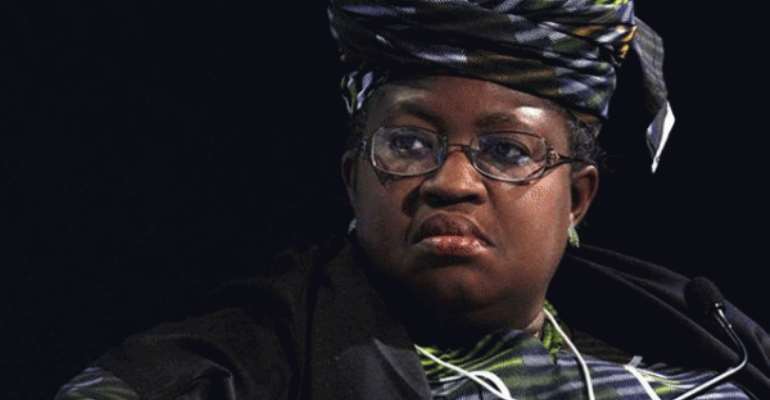Emergency rule: okonjo-iweala reassures on state of the economy

Minister of Finance and Coordinating Minister for the Economy, Dr. Ngozi Okonjo-Iweala has assured Nigerians and the international community that the fundamentals of the economy remain strong in spite of the security challenges facing the country.
According to her, economic growth was 6.5% in the first quarter of 2013, inflation is down to single digit, fiscal deficit is only 1.8 of GDP, foreign reserves stand at $48 billion and the government is working very hard on many projects that would impact positively on the populace.
Okonjo-Iweala spoke during a conference call today in her office involving 112 analysts and investment experts from across the world. The forum was organized by Standard Chartered Bank.
Responding to questions from renowned analyst Razia Khan on the implications of the state of emergency declared last week by President Goodluck Jonathan in Yobe, Borno and Adamawa States, the minister explained that the government of President Goodluck Jonathan is taking decisive action to secure communities in the North East affected by the activities of Boko Haram.
She explained that the intention of the government is to restore security and order to enable economic activities and normal life resume. The state of emergency, she further explained, gives security agents the latitude to flush out insurgents from their bases.
Okonjo-Iweala noted that the Presidency is adopting a multi-dimensional approach which includes political dialogue, counter-terrorism tools and economic inclusion to solve the problem. At the same time, government is hoping that the return of peace will create a strong foundation to spur economic growth, particularly through agriculture, the mainstay of the region.
While security forces do their job, the committee set up by the President on amnesty is expected to continue its work, she said. The President is particularly pained that the crisis has affected education as children and teachers are afraid to go to school, which is unacceptable the minister explained.
On efforts to diversify the economy, Okonjo-Iweala stated that the Reform Agenda is yielding fruits. She pointed out that the agricultural sector is being revolutionized to run on a profitable basis with access to fertilizer and improved seeds through more efficient, private sector methods.
She stated that farmers are also being linked to markets to support them to achieve more productivity and better profit margins. As a result, farmers in the North were able to produce 1.3 metric tonnes of rice in the dry season this year. The target is to produce 20 million metric tonnes of food by 2015, she disclosed.
There are also plans in the mining sector to develop other minerals such as coal, gold, bitumen and so on.
On housing, the government is working hard at land titles, foreclosures and other issues in that sector. Work is going on to establish a new mortgage refinance agency which will resume operation soon.
Asked about her priority for the financial sector, Okonjo-Iweala stated that government is concerned about financial inclusion whereby Small and Medium Enterprises (SMEs) can have access to funds. Measures are also in place to encourage more listing in the capital market. In addition, a forum is already in place to work with the creative industry including Nollywood on problematic areas such as distribution and intellectual property. When finished, the industry is expected to double the number of jobs it currently generates.
Responding to a question on whether the country is expecting a supplementary budget to tackle security challenges, the minister answered in the negative. She noted that a Contingency Vote was already built into the budget to take care of emergencies such as security and the flooding that affected many parts of the country last year.
The minister explained that the Excess Crude Account (ECA) has served Nigeria well in managing the price and quantity shocks that have been experienced this year just as it did during the global economic recession of 2008.
In the first week of June, the government will also launch an effort to improve non-oil sector tax collection, she said. The tax rate will remain unchanged but there will be greater focus on collecting from corporate organizations that are currently not paying taxes.
